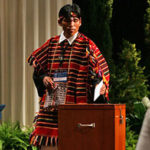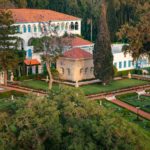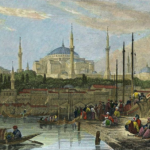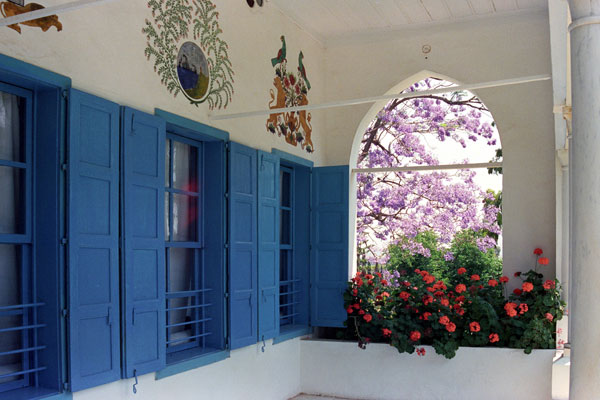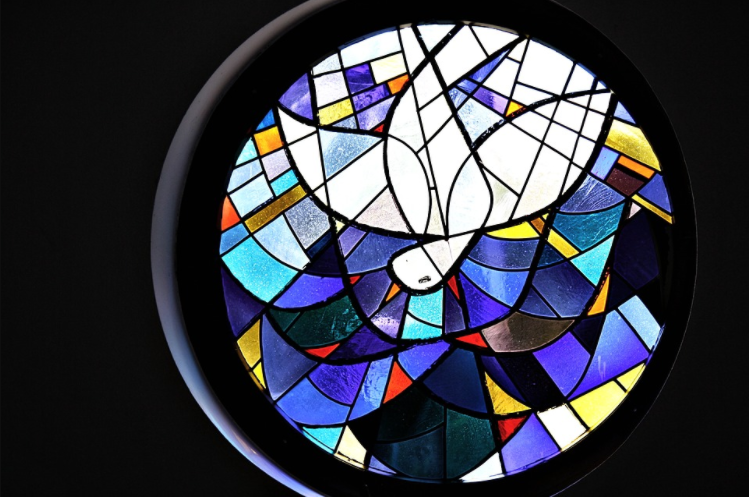
Consultation

It’s wonderful to speak about the unity of humankind. Who doesn’t want a peaceful world in which conflict is no more and all human beings have a safe and decent place in our world? Like all beautiful ideas – its easy to talk about but challenging to achieve How, in practice, do you build the unity of humankind and heal the many fractures in the body of humanity? Of course there is no magic wand that instantly solves all problems. Nor is it something that can possibly be achieved without the systematic and ongoing effort of a large proportion of humanity.
Baha’u’llah was centrally concerned with the problem – and his life’s work is embedded with concepts and recommendations that together form an astonishing strategy for fostering the welfare of humanity.
One element of that strategy is the art of consultation.
The heaven of divine wisdom is illumined with the two luminaries of consultation and compassion. Take ye counsel together in all matters, inasmuch as consultation is the lamp of guidance which leadeth the way, and is the bestower of understanding.[1]
Among the ways Baha’u’llah promotes consultation is through providing for the establishment of consultative institutions at local and global level. He urges them to “take counsel together” and be concerned for the welfare of all humanity.[2] It is the same advice he gives to parliaments:
O ye members of Assemblies in that land and in other countries! Take ye counsel together, and let your concern be only for that which profiteth mankind, and bettereth the condition thereof…[3]
It is needless to say that this is not how consultation is conceptualised as currently practised in public life. Rather than the common good being the central point of consultation – often sectional, partisan or national interest drive not consultation but conflict. Abdu’l Baha commented on his impressions following a visit to a parliament.
I was present at a session of the senate, but the experience was not impressive. Parliamentary procedure should have for its object the attainment of the light of truth upon questions presented and not furnish a battleground for opposition and self-opinion. Antagonism and contradiction are unfortunate and always destructive to truth. In the parliamentary meeting mentioned, altercation and useless quibbling were frequent; the result, mostly confusion and turmoil; even in one instance a physical encounter took place between two members. It was not consultation but comedy. The purpose is to emphasize the statement that consultation must have for its object the investigation of truth.[4]
Abdu’l Baha had lived all his life under the oppression of autocracy. What would have he expected from his first visit to a parliament?
Things are no better nowadays, with the divisiveness of parliamentary and democratic processes such that ordinary citizens feel increasingly alienated and lack confidence in their governing institutions. It’s a reasonable hypothesis that if political debate didn’t involve so much mutual denigration, people would have more confidence in government. It’s also not unreasonable to believe that less hostility and conflict of this kind would have a beneficial effect on the quality of governance.
Abdu’l Baha offered a model for consultation. It’s not necessarily easy to understand – as the model is grounded in transcendent spiritual qualities – though undoubtedly beautiful. He uses a story to convey his meaning. It is almost as if even before a word has been spoken – the consultation has achieved its result.
true consultation is spiritual conference in the attitude and atmosphere of love. Members must love each other in the spirit of fellowship in order that good results may be forthcoming. Love and fellowship are the foundation.
The most memorable instance of spiritual consultation was the meeting of the disciples of Jesus Christ upon the mount after His ascension. They said, “Jesus Christ has been crucified, and we have no longer association and intercourse with Him in His physical body; therefore, we must be loyal and faithful to Him, we must be grateful and appreciate Him, for He has raised us from the dead, He made us wise, He has given us eternal life. What shall we do to be faithful to Him?” And so they held council. One of them said, “We must detach ourselves from the chains and fetters of the world; otherwise, we cannot be faithful.” The others replied, “That is so.” Another said, “Either we must be married and faithful to our wives and children or serve our Lord free from these ties. We cannot be occupied with the care and provision for families and at the same time herald the Kingdom in the wilderness. Therefore, let those who are unmarried remain so, and those who have married provide means of sustenance and comfort for their families and then go forth to spread the message of glad tidings.” There were no dissenting voices; all agreed, saying, “That is right.” A third disciple said, “To perform worthy deeds in the Kingdom we must be further self-sacrificing. From now on we should forego ease and bodily comfort, accept every difficulty, forget self and teach the Cause of God.” This found acceptance and approval by all the others. Finally a fourth disciple said, “There is still another aspect to our faith and unity. For Jesus’ sake we shall be beaten, imprisoned and exiled. They may kill us. Let us receive this lesson now. Let us realize and resolve that though we are beaten, banished, cursed, spat upon and led forth to be killed, we shall accept all this joyfully, loving those who hate and wound us.” All the disciples replied, “Surely we will—it is agreed; this is right.” Then they descended from the summit of the mountain, and each went forth in a different direction upon his divine mission.
This was true consultation. This was spiritual consultation … [5]
Perhaps the following questions help us access some of the underlying meaning. What are the qualities of those engaged in the consultative process? How do they use language? How do they listen to each other? What is most important to them? What does it mean that they were on a mountain?
Consultation is far more than a beautiful idea for members of the Baha’i community. Baha’is have for more than a century been learning how to translate it into reality – what true consultation looks like in practice. It is not always easy – indeed sometimes it is very hard – but it is possible when an entire group of people work together to create such an environment.
Image Source: http://media.bahai.org/detail/4876260 Baha’i reflection meeting in Honduras Copyright © Bahá’í International Community
